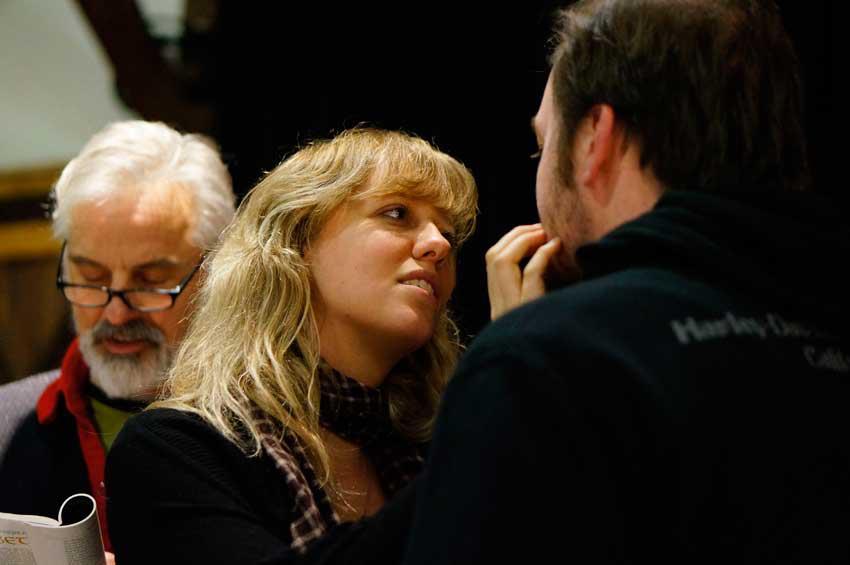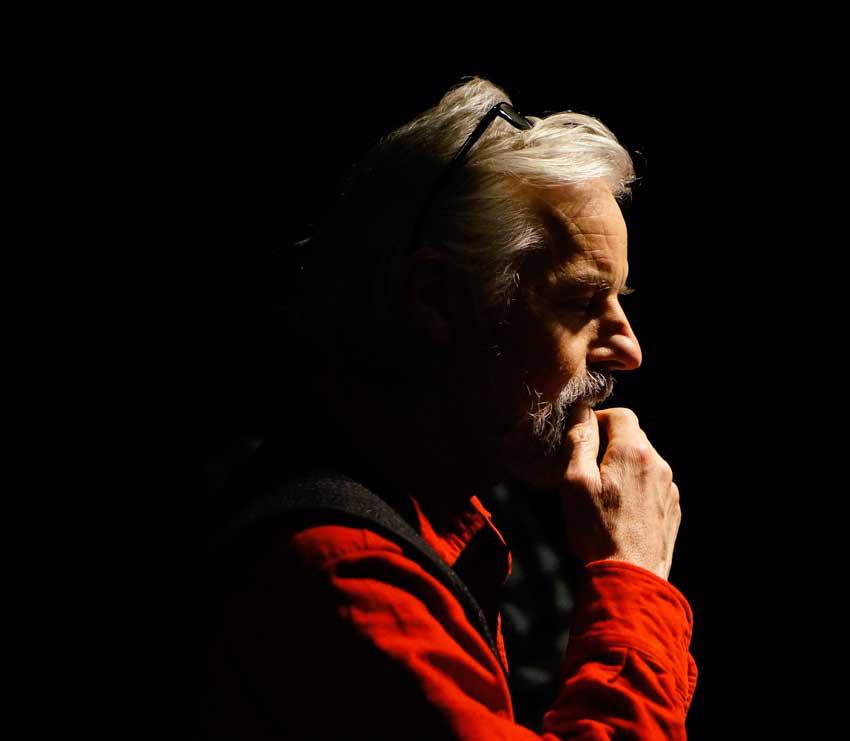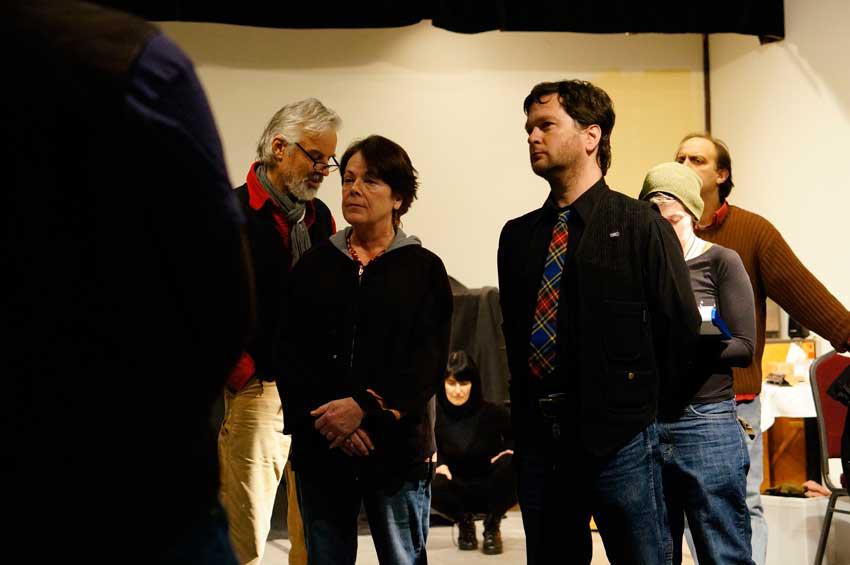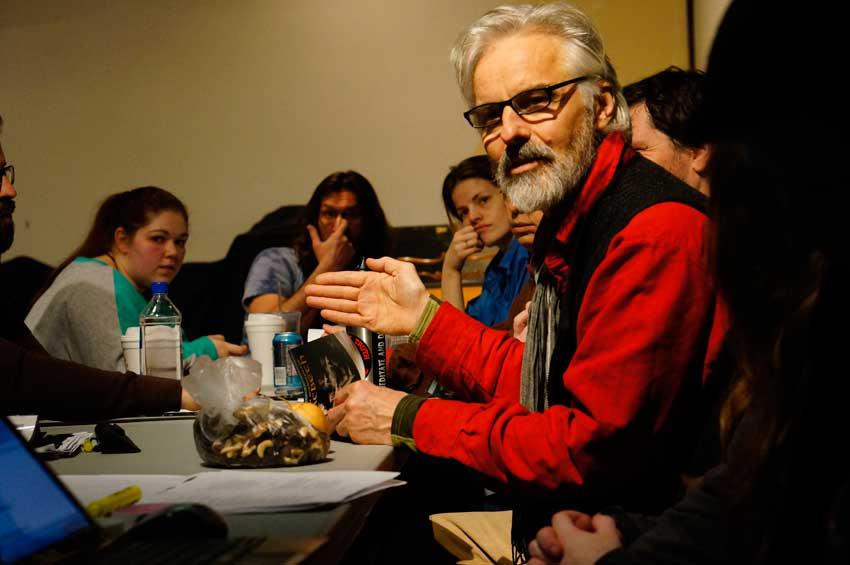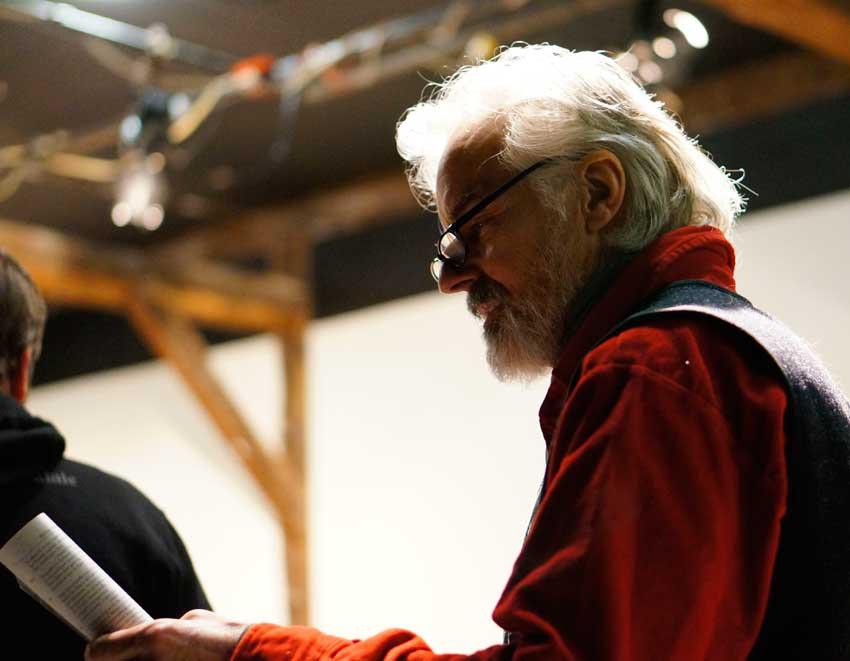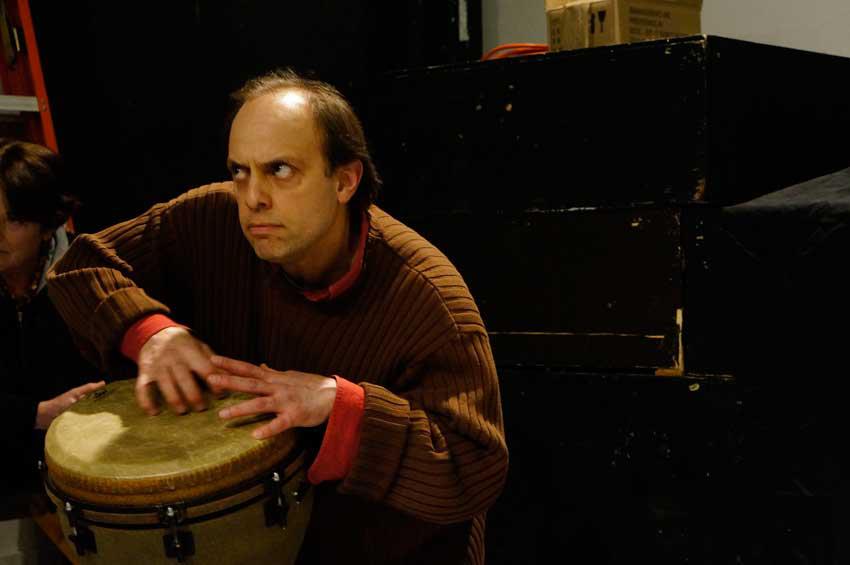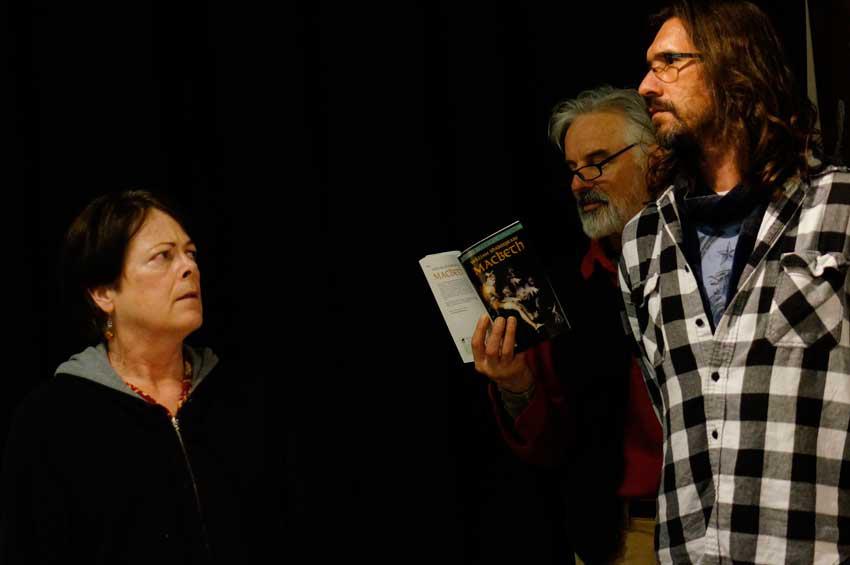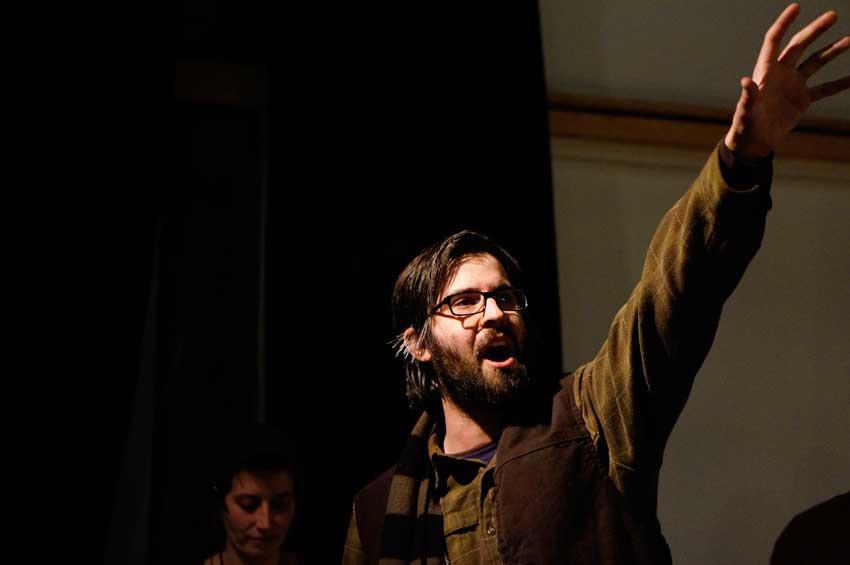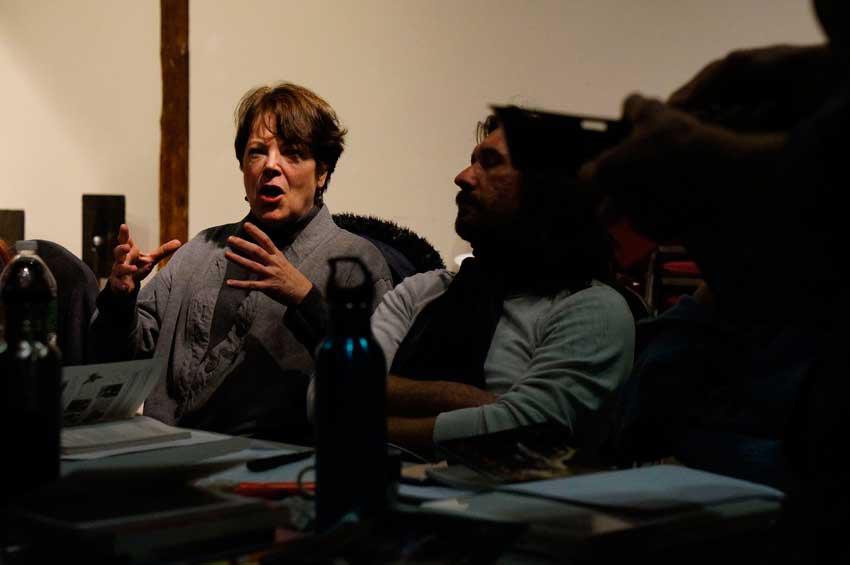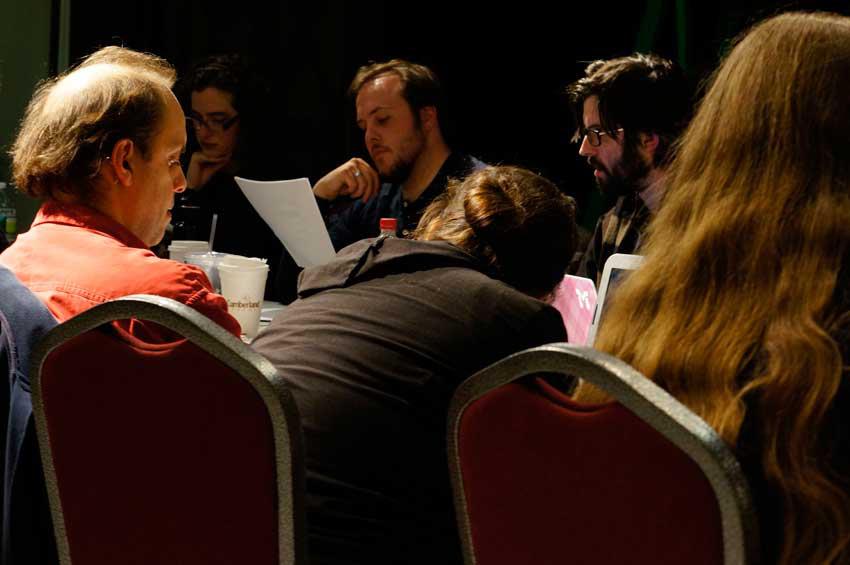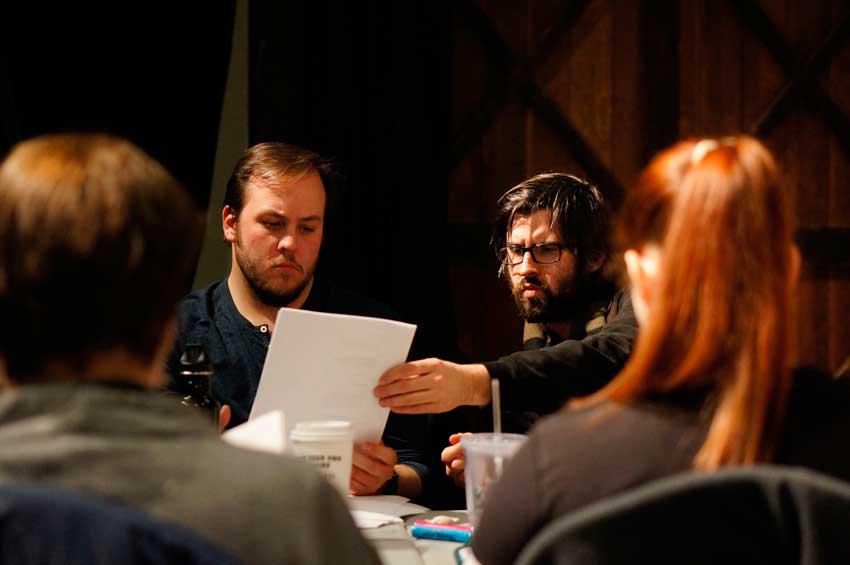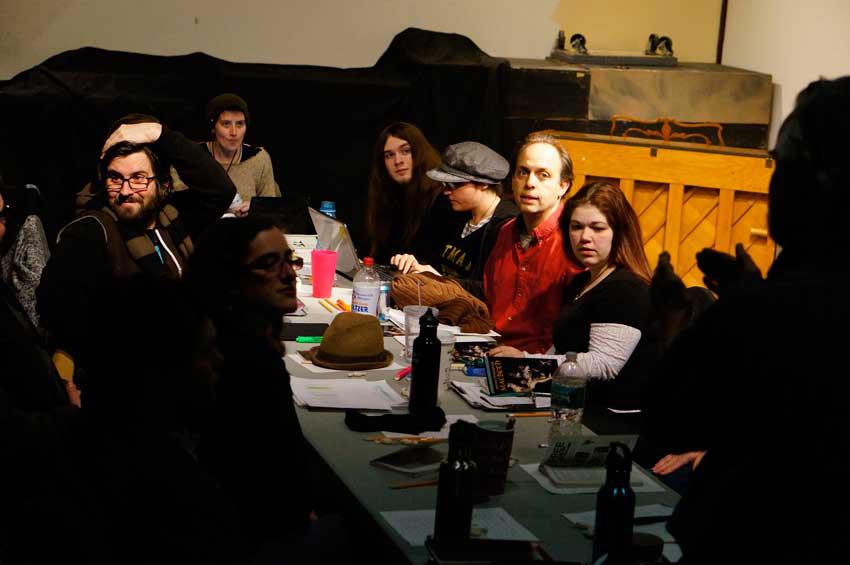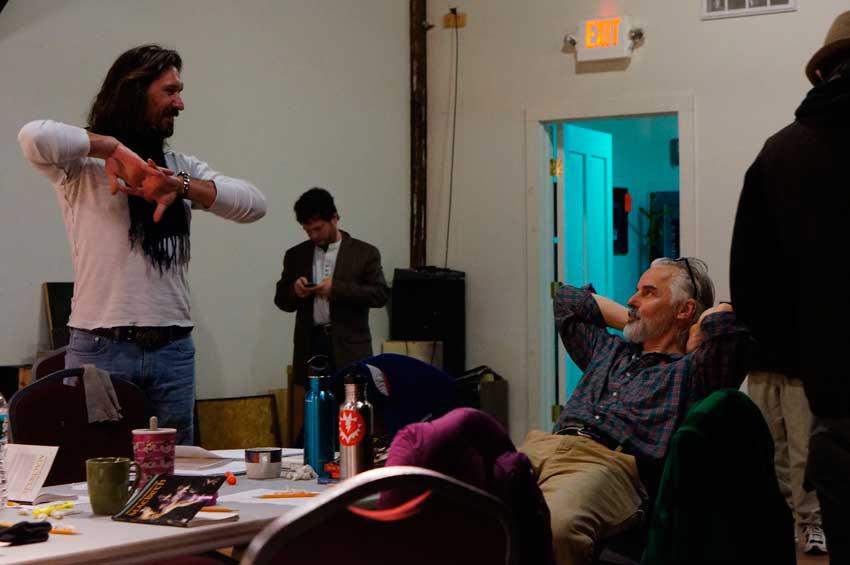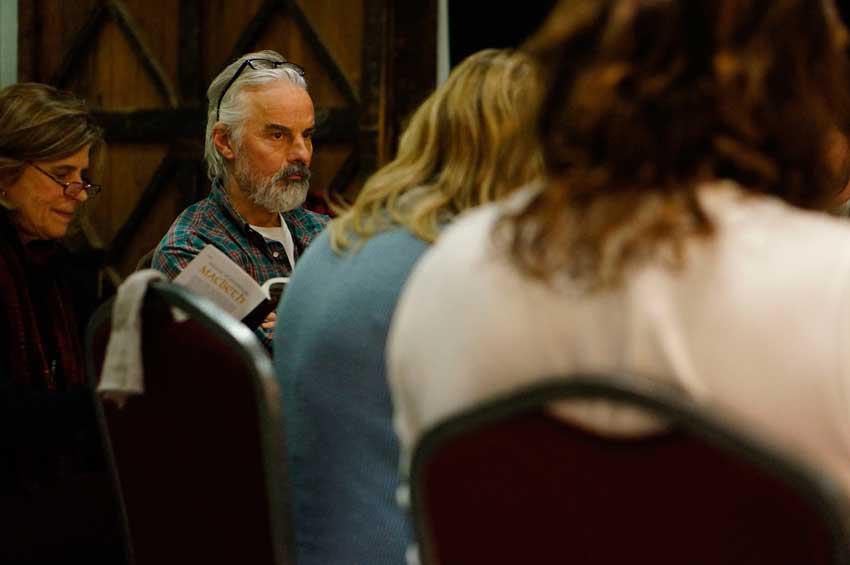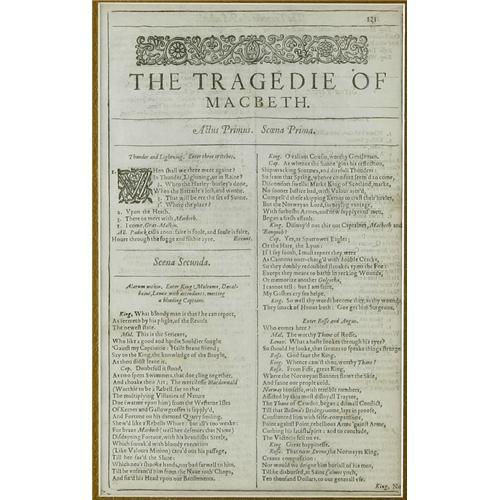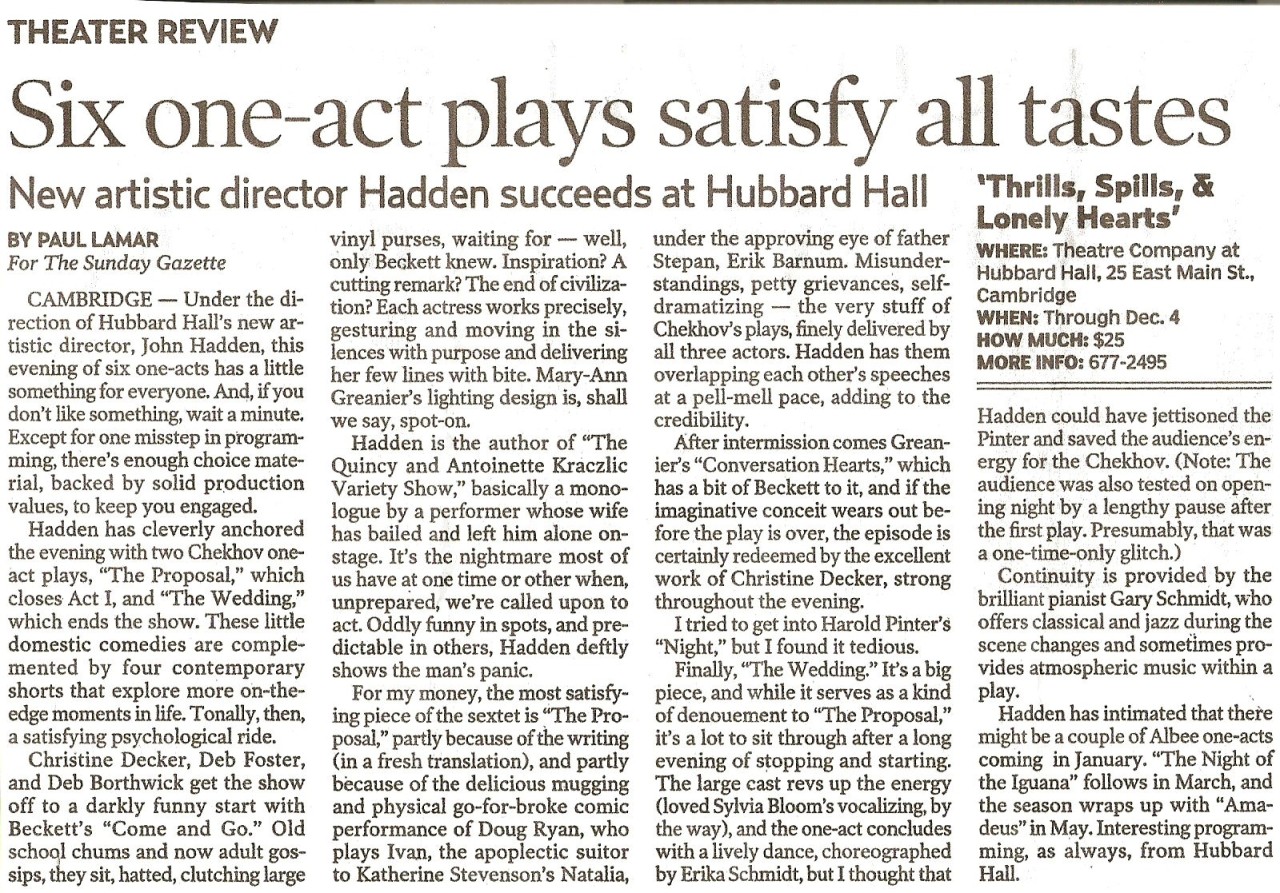Sense and nonsense are equally subject to critical scrutiny, but it is perhaps more difficult to develop standards for good nonsense. One has to acquire a sense of it. The scenes of The Tennis Court Oath… arose out of a course in site-specific writing. The writing, which is all by the actors themselves, except for small contributions by Shakespeare and Yeats, began with meditative observation of each site. Characters and situations thus came out of the ground, out of the sky. In compilation, revision and rehearsal, good sense and nonsense were judged less by thought than by sensory perception. We tried to keep what smelled good, what rang nicely in the ear.
Directing
Macbeth Rehearsal
Macbeth Read Thru
Notes: Macbeth
Notes on Macbeth
It’s been a great pleasure working on this play with this wonderfully generous cast and crew. We found that the play’s famous darkness is balanced by how beautifully the story is told–and that buoyed us through the long nights of rehearsal.
In this production we decided to focus on the inner lives of the Macbeths themselves. This allowed us to double- and triple-cast all the other parts and relocate some of the scenes in the bedroom and in Macbeth’s fitful dreams. Once he gives in to his wife’s terrible need, he will “sleep no more.” As the events unfold, it becomes clear that something as commonplace as a good night’s sleep is worth more than all the kingdoms in the world. I wanted the Macbeths to be young, in a time of life when sexual emotion is at its strongest, so that the core of the problem resides right down the middle of the marriage bed. If grotesque ambition is a disease that leads not only to general chaos but to pain and madness, as is the case in Macbeth, it might do well to look deeper, through the lucid eyes of the perpetrator, to find the roots of the disease. And he speaks of it clearly, right to us, regularly throughout the course of his downfall. Thank you for giving him someone who will listen.
Climbing Mt. Hamlet
Climbing Mt. Hamlet: a short documentary by 8th Grader Jeremy Loewer
The Night of the Iguana

Two By Albee
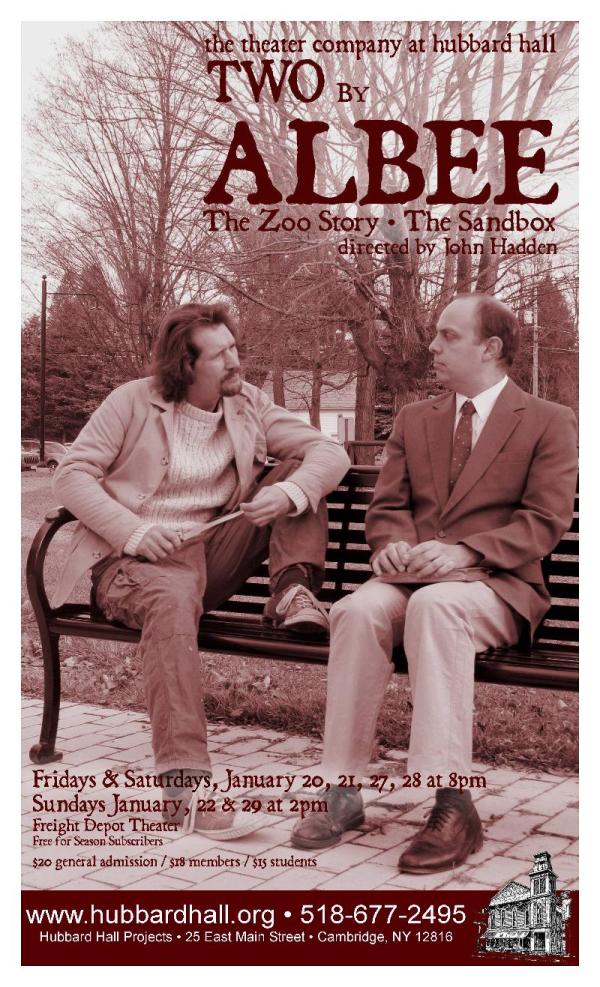
New artistic director Hadden succeeds at Hubbard Hall
As You Like It
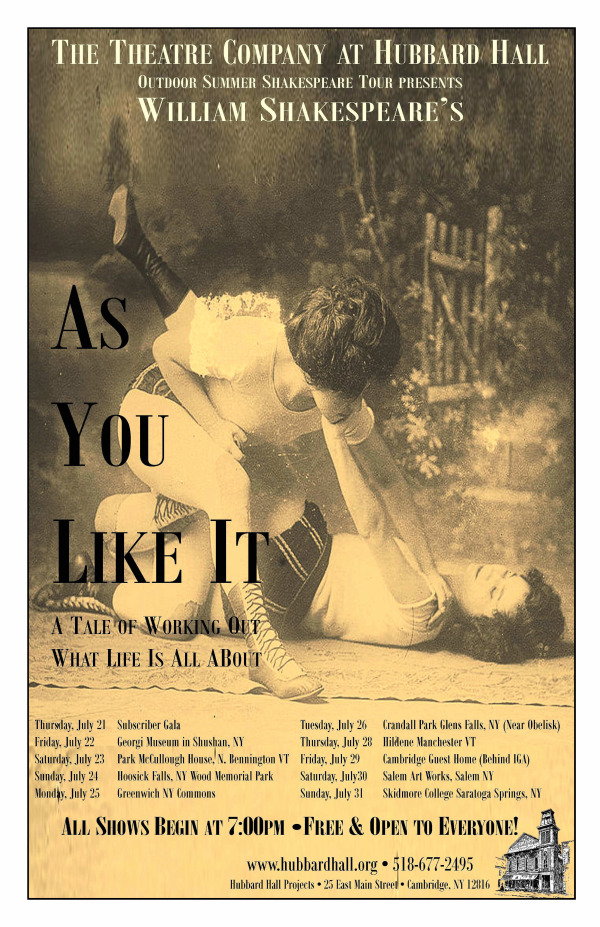
Notes: As You Like It
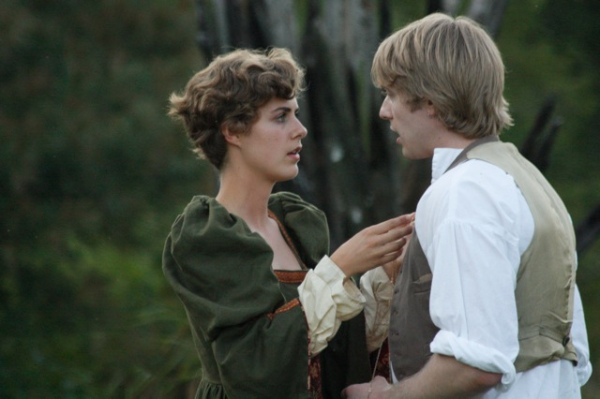
Director’s notes
Yes, As You Like It is one of Shakespeare’s most popular plays, but why? The plot is complicated and inconsequential, the characters are not as eloquent or eccentric as in other plays; on the surface of it, it’s a play to make one rather shrug than swoon. The reason people have always loved the play, I think, is due to things not quite logical. Like love and nature, the intertwined theme of the play. Forced away from their lives at the corrupt court to the hard life of the country, most of the characters experience a longing for their essential selves, which prompts actions both deep and ridiculous. Four (count em, four!) pairs of young lovers go through all the pain and comedy we all know about or will know about, and yet, in Shakespeare’s most magnanimous love play, we get a sense that love is possible despite the impossibility of it. This unfolds alongside a gentle, almost subliminal exploration of the big questions. So we like that. And, there’s wrestling!
The play takes place in an imaginary time, in the following locales: The DeBoys’ Estate, the Town Square, The Duke’s Council Chamber, and the Forest of Arden.
